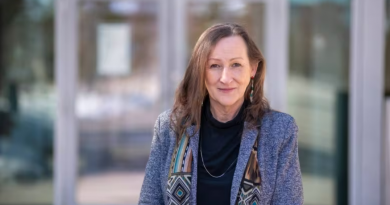Norwegian-funded school in Northwest Russia inspires cooperation
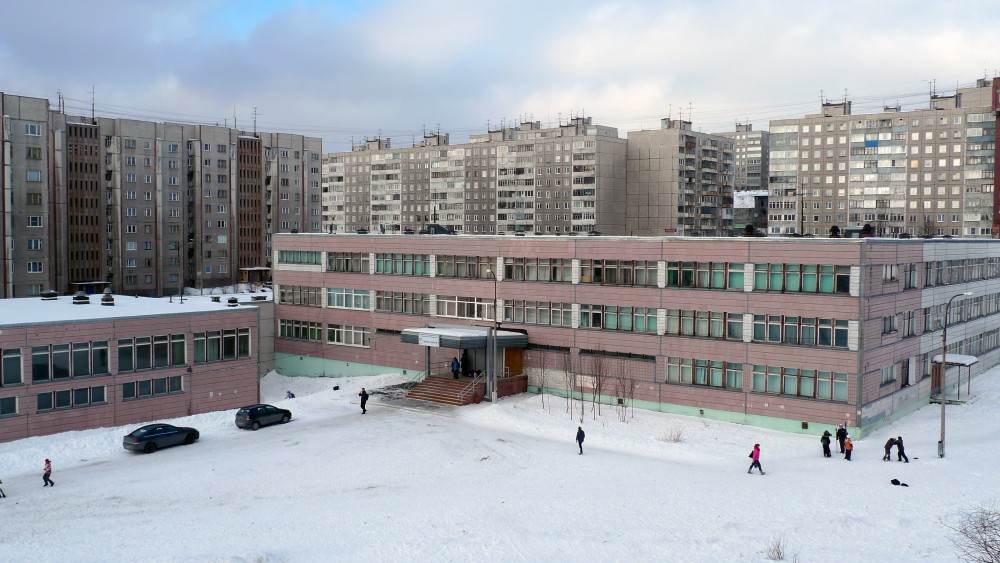
About 70% of the Russian students leave Murmansk for Norway after a year at the gymnasium class. This weekend, the school celebrates its 10-year anniversary.
In 2012, the Barents Observer visited gymnasium No. 1 in Murmansk and talked to the 15 pupils in the joint Norwegian-Russian class. Five of the students were Norwegians, 10 were Russians from different cities on the Kola Peninsula.
After ending the class, nine of the 10 then left for studying in Tromsø, northern Norway and only two of those again returned back to Russia, a review of their Facebook profiles shows.
Interviewed in 2012, Julia Pyanchenkova said her plan was to study information technology and entrepreneurship in Norway. She believed many of the students would get jobs in Norwegian companies working in Russia in the future.
Since 2012, most Norwegian companies in Murmansk have closed down and left Russia.
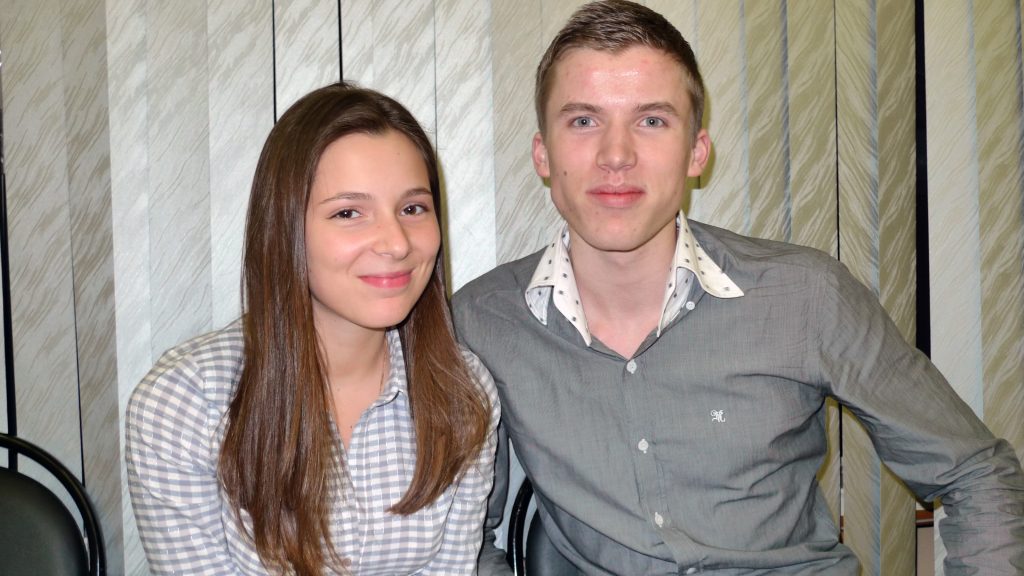
Norwegian education’s power of attraction
Julia Pyanchenkova graduated in 2017 with a Master in Social Economics at the University of Tromsø – The Arctic University of Norway. Also others from the class now live in Tromsø and other places in Norway, from Vadsø in the north to Stavanger in the south.
Bjarne Berg has been with the school in Murmansk since the start and is responsible for the daily operations. “On average, about 70% of the Russian pupils leave for Norway to study. Most of them get a job in Norway after graduating”, Berg tells to the Barents Observer.
In January, researchers at the Russian Presidential Academy of National Economy and Public Administration said brain drain is on the rise for economic and political reasons. Each year, an estimated 100,000 Russians emigrate to developed countries, of which 40% have higher education, the Moscow Times reported from the study. 25% of the respondents interviewed by the academy said they left Russia due to political reasons including “disappointment after the 2012 elections and especially the events of 2014.”
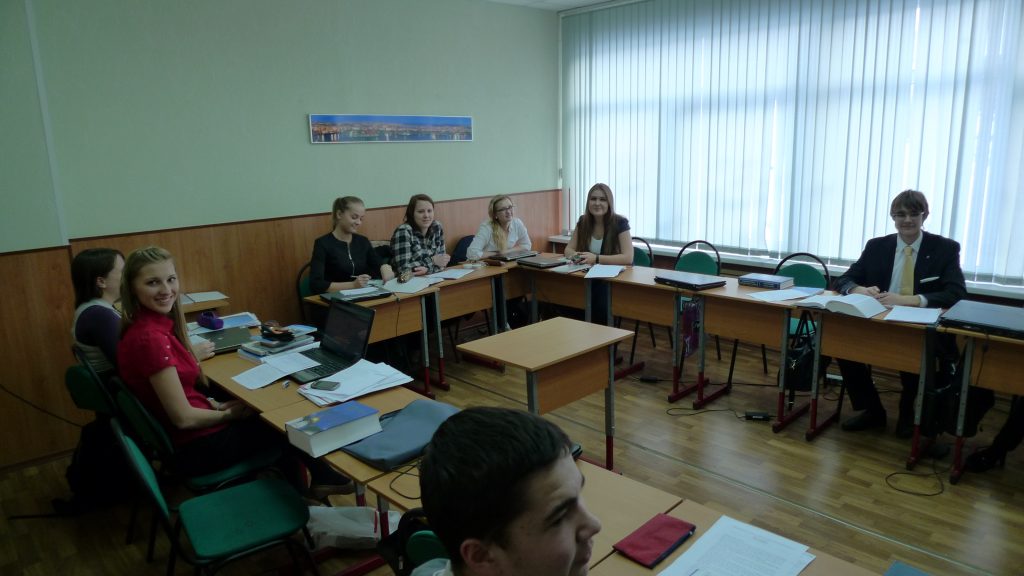
Data from the Russian Academy of Science suggests that brain drain has doubled over the last three years. Deputy Prime Minister Dmitry Rogozin in February called for the state to take measures to prevent brain drain.
“It is extremely important that results of intellectual activity remain in the country. This is one of our weakest points here in the country”, Rogozin said to Interfax.
Fostering cooperation
The Norwegian-Russian school-class is a cooperation project between regional authorities. This weekend, county officials from Troms are in Murmansk celebrating the 10-year anniversary. Since the start, 131 pupils have attended the class, getting first hand insights to each others culture and language. Head of Troms County government, Willy Ørnebakk, attends the celebration and met with Murmansk Governor Marina Kovtun and talked about continuation of the project.
“We do believe the Norwegian-Russian school is a successful project given the rather limited budgets”, says Bjarne Berg.
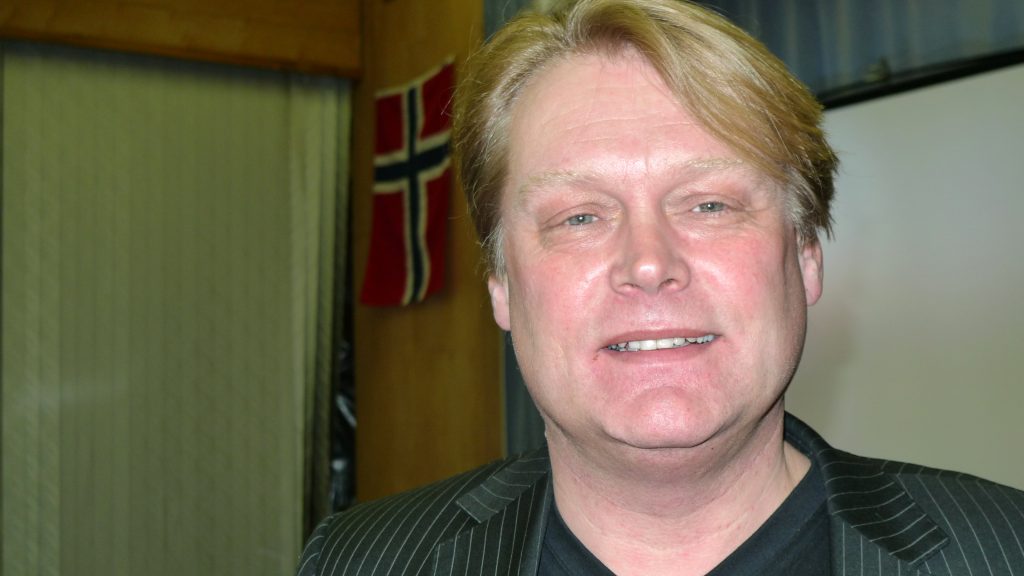
He hopes for broad political support in Norway to continue the project and cooperation with Russia. “It’s our neighbor although being a special situation over the last few years.”
“Longterm thinking is important, and we feel that the school is maybe more important than ever, since we are educating young Russian and Norwegian youths that are going to rebuild, and continue the good people-to-people cooperation with Russia”, Berg argues.
“We do look forward to another 10 years”, he says with a exclamation mark.
Highly appraised
Eirik Mofoss, one of the Norwegians who attended the class in 2012 also praises the school.
“The year at the Norwegian-Russian school gave me a unique opportunity to get first-hand insight to Russia, Russian culture, history and language”, he today says to the Barents Observer. Mofoss experiences that the competence he got makes him more tempting for both businesses and politics, even in times like now with less Norwegian-Russian cooperation.
“Whether you want a carer in Norwegian politics, diplomacy, business – either in Norway or internationally, a year at the Norwegian-Russian School can give a lot of opportunities to especially motivated students.”
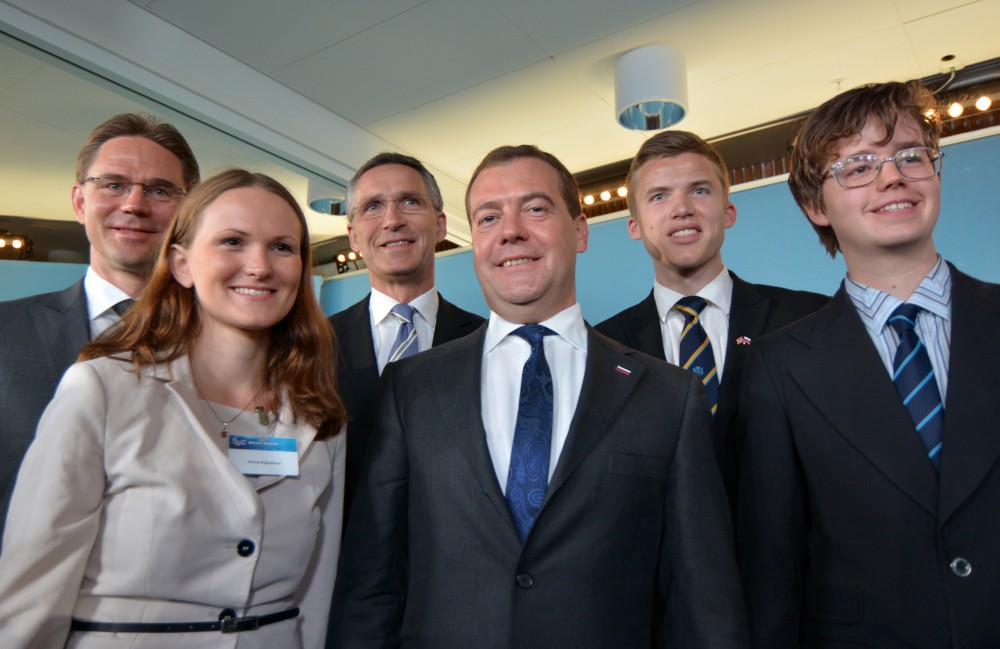
Eirik Mofoss has since 2012 both been engaged by the Norwegian Foreign Ministry and been active in politics. “I got a lot of international experiences even before I started at University.”
Mofoss says the school is an important peace-building project, “maybe especially important in current times.”
“I also got a new perspective on Norway, seen from outside, and our role in the world, other countries interests in the High North, big nations politics and more”, Eirik says enthusiastic.
Commenting on the high number of the Russian students from the school that ends up in Norway, Mofoss believes they will all put fuel to good human relations between the two countries.
“Talented Russian pupils will from the Norwegian-Russian school in Murmansk get opportunity to learn Norwegian, come to Norway and study, and many will later get a job in Norway. This gives Norway a unique competence at the same time as it strengthen the already good human relations between Norway and Russia.”
Related stories from around the North:
Canada: Canadian government invests over $35M to preserve Indigenous languages in the North, Radio Canada International
Finland: Bilingual Finnish-Sámi teaching to start in Helsinki school, Yle News
Norway: Arctic Frontiers kicks off with majority of speakers from south of the Arctic Circle, The Independent Barents Observer
Russia: PHOTO REPORT: Tundra children return from school, The Independent Barents Observer
Sweden: Activists say use of Finnish in Sweden is being restricted, Yle News
United States: ‘Every year it’s harder’: Hiring teachers gets increasingly difficult in rural Alaska, Alaska Dispatch News

